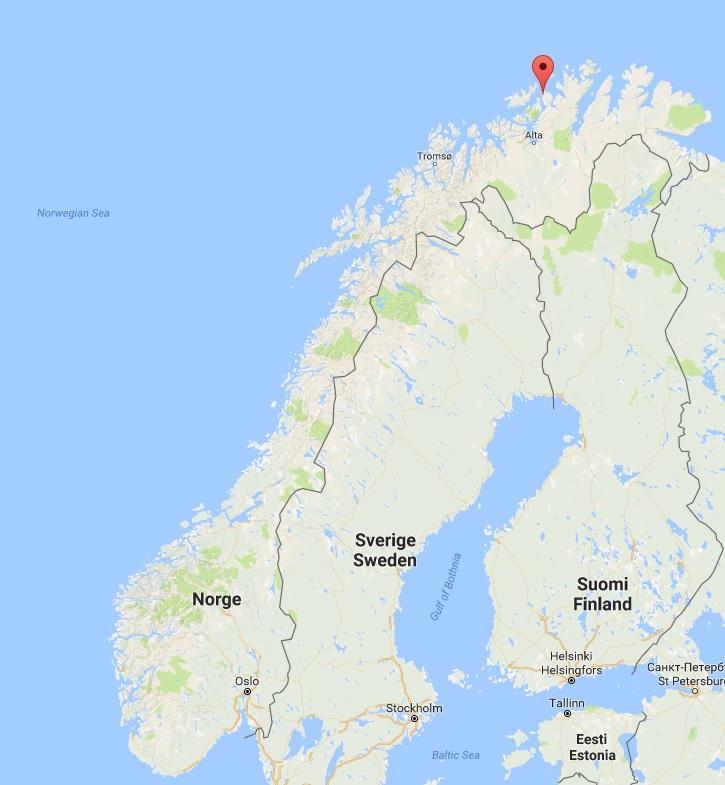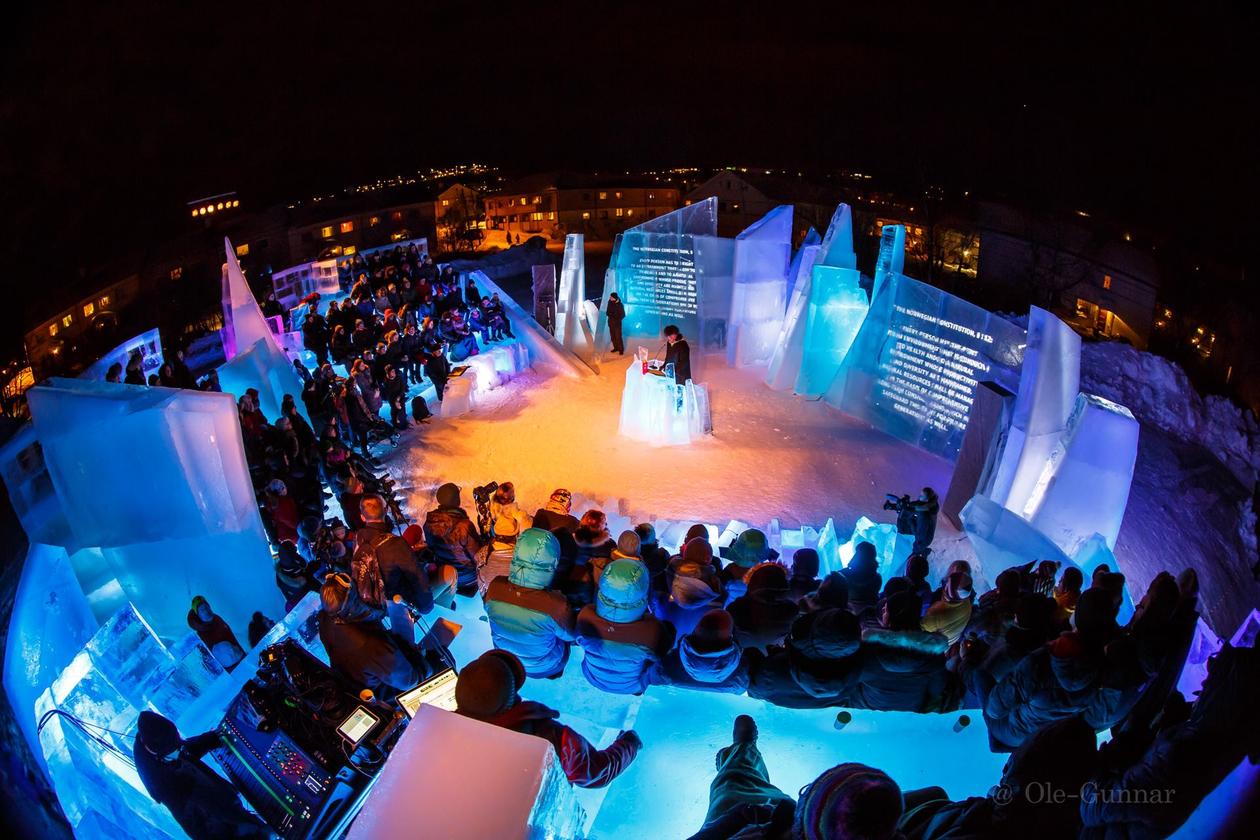CSR in Norway - Values at stake
Latest field report from the Energethics-project - Ragnhild Freng Dale’s case study in Hammerfest explores how corporate social responsibility is understood, interpreted and operationalised in a Norwegian context.

Main content
The city of Hammerfest, located in the north of Norway, has changed drastically over the past ten years, having become home to two big petroleum projects operated by Statoil, 67% owned by the Norwegian state, and Eni Norge, owned by the Italian company Eni SpA.
PhD Candidate Ragnhild Freng Dale conducted the majority of her fieldwork in Hammerfest between March 2015 and September 2016. During this time she attended stakeholder meetings, participated at industry events, travelled the region, and lived and worked in the area for longer periods. Dale also followed local and regional protests against the industry, and she has been associated with several arts projects.
Part of Dale’s research investigates how corporate social responsibility (CSR) is performed and the different forms and degrees of consent operating in the surrounding society, from locals in different occupations and the indigenous Sámi to fishermen and those who work directly for the industry. She is looking into the perceptions and changes of how the industry and companies in question operates.
CSR in a Norwegian context
The petroleum industry in Norway is strictly regulated and highly taxed, and for the Hammerfest municipality, the property tax from Statoil’s onshore facility (Snøhvit), ensures a significant boost to local income, enabling big investments in schools, a cultural centre and infrastructure, amongst other things.
In Hammerfest, growth and affluence in recent years is closely linked with Snøhvit and the expanding petroleum development. There is generally a high level of trust in the regulatory system across Norway, and this also influences how CSR is understood in the Norwegian context.
The local community and degrees of consent
One of the key factors where the local community expects Statoil and other companies to perform is the location of their activities. Where the company choose to set up their offices and gas/oil terminals signals commitment to the region and influences of how the community view the company, partly because the host community expects an increase of jobs and wealth for the area.
This can be seen in the debates around ‘Johan Castberg’, another oil field Statoil is developing in West Finnmark. The local population has generally been positive to the development of this project, but in 2016 Statoil abandoned the plans for an onshore terminal, and this caused many to disapprove of what they saw as Statoil’s lack of commitment to local employment. The offshore solution for Eni’s Goliat has concentrated the economic benefits mainly to Hammerfest and Alta with less benefits and opportunities for neighbouring municipalities, and these experiences influence people’s expectations for future fields.
Many rely on access to the surrounding nature to continue to work as fishermen and as reindeer herders in this region. Whilst impact assessments are carried out for each separate industrial project, there has not been sufficient mapping or assessment to know what the impacts on different parts of the indigenous Sámi population will mean. Risks to fisheries are as relevant to all fishers in the region, since they all rely on access to the sea and its resources.
The Trial of the Century
In addition to the case study in Hammerfest, Dale has also been part of an art project lead by artist Morten Traavik. This art project, “The Trial of the Century” came about in relation to the upcoming lawsuit where Greenpeace Norway and Natur og Ungdom allege the Norwegian government for violating article 112 of the Norwegian constitution. Article 112 states that the diversity and resources of the nature must be secured and protected for the health of all and for the coming generations.
An outdoor court hall made from 190 tonnes of ice served as the court room for the Peoples’ Tribunal in Kirkenes in February this year. The trial lasted for three days and during this time the prosecution and defence gave their statements before the People’s Tribunal of Kirkenes cast their verdict. The decision the Tribunal decided upon was; “yes: oil extraction in the South-East Barents Sea is against the Norwegian Constitution’s § 112”, and “no: oil extraction in the South-East Barents Sea is not against the Norwegian Constitution’s § 112”. The final verdict read; Yes with 74 votes and No with 49 votes.
The “Trial of the Century” brought awareness to the people living in Kirkenes and to the general Norwegian public about the values at stake when extracting or not extracting more oil from the Barents Sea, and shows the diverse opinions about the petroleum industry in the Northern region.


